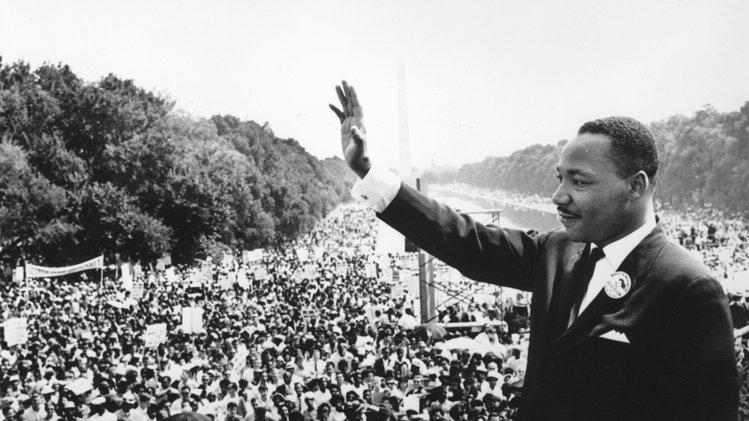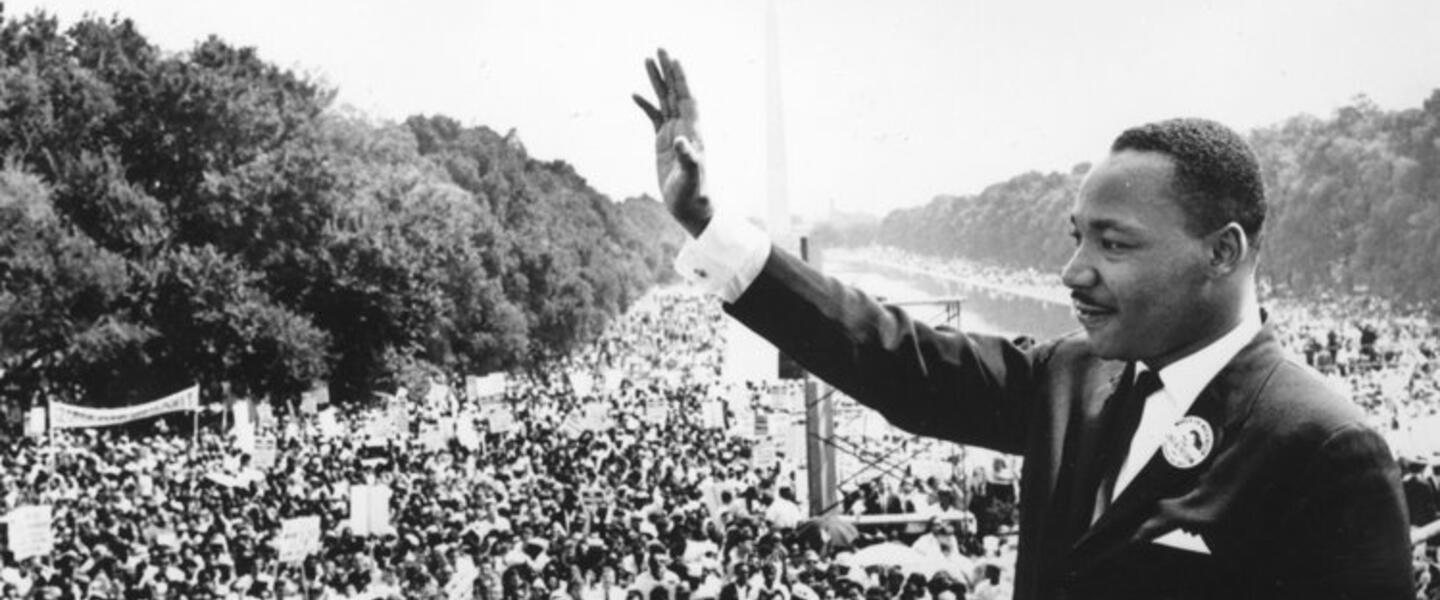
Section Branding
Header Content
Primary Sources for Teaching the 50th Anniversary of the March on Washington
Primary Content

Over the weekend thousands of people gathered on the national mall to commemorate the 50th anniversary of the march on Washington. To young students, that now famous moment of civil rights history where Dr. Martin Luther King Jr. delivered his iconic “I Have a Dream” speech, may seem like ancient history. One of the ways that teachers can connect students to that event of the past is to provide them with the sources used by the people of that period of history.
For example, it may be of interest to students to know that 15 percent of the marchers were students. Many of the students who got involved received a four page flyer inviting them to come. PBS Learning Media offers a copy of that flyer along with a background essay and discussion questions. Would young students today come to the march if they received the same flyer? You can present the flyer, background essay and essay questions to students to obtain their reaction. Perhaps ask the students to design a more modern flyer that would be more effective to students today.
What other modern methods would they employ to get students of today interested in the march on washington had they been available in the 1960s.
PBS Learning Media also has the official program of the march on washington for students to review. That document also comes with a background essay to help put the day’s events in context.
There is also a lesson on Dr. King’s “I Have a Dream” speech that urges students to examine how a speech is similar to and different from other literary forms.
Students may be surprised to learn that Dr. King had help in writing the speech he delivered. Playback the interview with Charles Cobb Jr., the attorney that assisted King with that speech. Hear him recall how King improvised the latter half of the speech after being egged on my gospel singer Mahalia Jackson. Hear Cobb also discuss why he decided to copyright King's speech and how it has benefited the King family.
Other Resources:
Congressman John Lewis collaborated with his aide Andrew Aydin and comic book artist Nate Powell to create the graphic novel the March. In the book, Lewis recounts how he became involved in the civil rights movement. There is also a lesson plan based on the book.
Check out the PBS Learning Media civil rights collection that also features primary sources.
On GPB TV:
Building the Dream - Shares how the idea for the national monument honoring Martin Luther King Jr. became a reality. Airs Monday, August 26 at 7 p.m.
The March - This documentary examines the 1963 March on Washington, its history and how it nearly did not take place. Airs Tuesday, August 27th at 9pm and replays Thursday, August 29th at 10 p.m.
Freedom Riders: American Experience - Watch the documentary about the integrated group of college students who challenged segregation laws by riding Greyhound buses to the south together. Airs Tuesday, August 27th at 10 p.m. (Get video segments to use in your classroom by visiting PBS Learning Media's Freedom Riders collection.)






